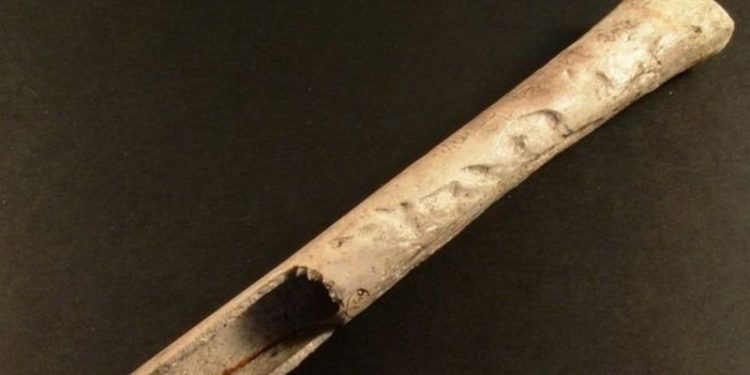In one case, a human thighbone found in a grave near Stonehenge, England, was turned into a musical instrument.
This “unimaginably gruesome” tradition preserves human remains from the Bronze Age period.
The archaeological discovery by a team at the University of Bristol, England, reveals how the death event was commemorated 4,500 years ago.
In one case, a human thighbone found in a grave near Stonehenge was turned into a musical instrument.
The discovery was made using radiocarbon dating and X-ray scanning techniques.
Dr Thomas Booth, from the University of Bristol, said, “Even in modern secular society, human remains are seen as objects of power.
This too seems to have been held tightly by the people of the Bronze Age.
“However, they treat and interact with the dead in ways that are very terrible to us today.”
In a discovery made at Wilsford, near Stonehenge, the carved and polished human thighbone was found along with other items, including stone and bronze axes, slabs of bone and ivory.



